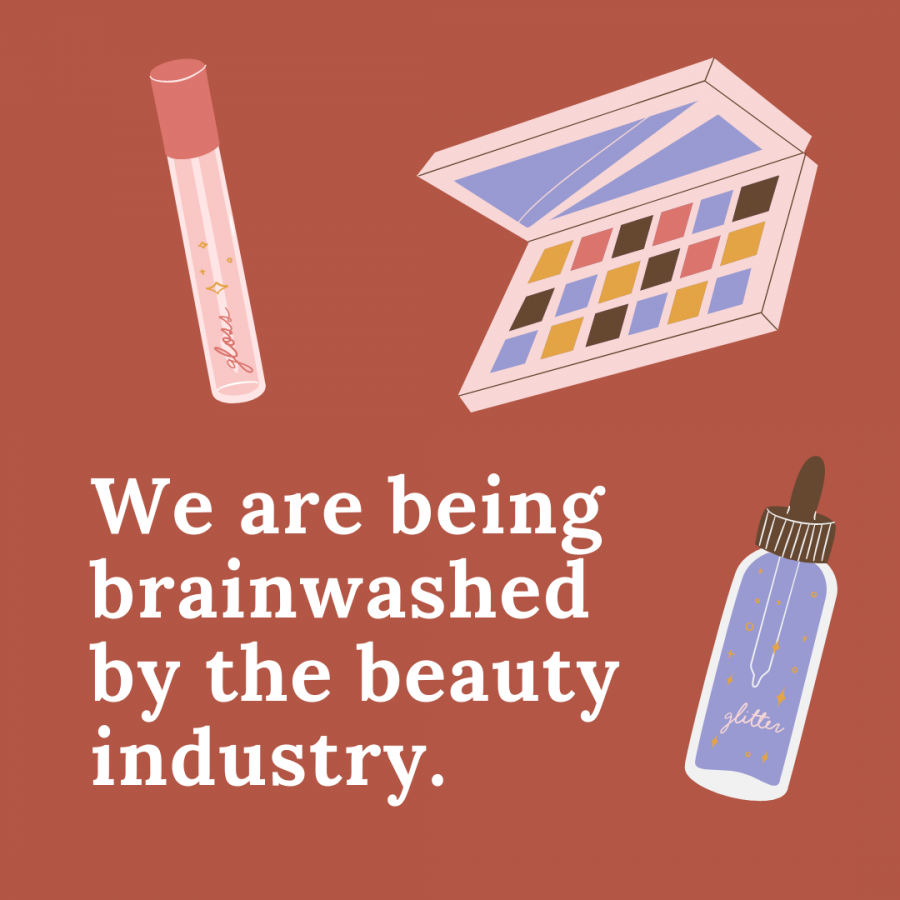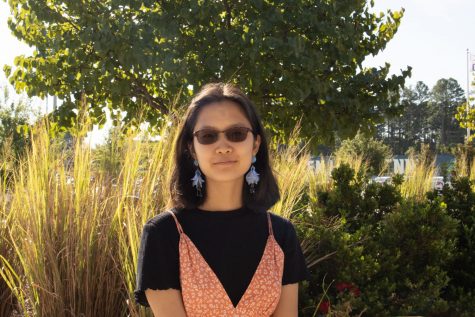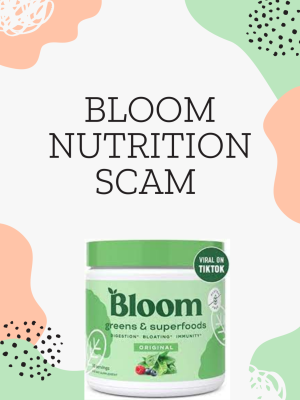Makeup and Plastic Surgery are the Patriarchy’s Profit
The complexity of makeup, plastic surgery, and the patriarchy.
August 27, 2021
“I’ve been wearing makeup even though I put on a mask. That proves I’m wearing it for myself.” I remember so many of my female peers saying that throughout virtual school and now, defending makeup and plastic surgery as tools of empowerment. But concealing your flaws with cosmetic procedures when no one is watching isn’t power or strength, it is being “brainwashed into believing patriarchal beauty ideals are our own.”
The $511 billion beauty industry is riddled with money-making men: 71% of executive positions are held by men, six of the seven major corporations that own 182 of the world’s top beauty brands are owned by men, and only 11% of creative directors for advertising are women.
The frequency of the word, “empowerment”, comes from these feminist, body-positive advertisements made by companies who are trying to sell you their products. As companies do so, they accumulate profit. In 2013, Dove’s “Real Beauty” campaign for self-acceptance and while a positive feminist message, the intention of the campaign seemed more financially oriented: their sales grew from $2.5 to $4 billion, as their sister company Axe, created ads objectifying and hyper-sexualizing women. These beauty companies do not actually care about your confidence or self-love, but they do view those feelings as marketing tools and view you as a consumer. They will deceive you with diversity as written in by Dr. Renee Engeln in the novel Beauty Sick: showing a range of skin tones but all without acne or blemishes; small and large bodies but all in the shape of an hourglass; red and bare lips but always full lips. Their femvertising is not systemic change, but rather surface level talk. Their feminism is directed toward individual short-term solutions, not to do with a movement or women as a whole.
Makeup and plastic surgery are also built on western patriarchal beauty standards, in which a white body and face are most desirable. The now popular double eyelid surgery originated during the Korean War and was created by an American military plastic surgeon. Some of the first people it was performed on were Korean war brides who married American soldiers. But now a new phenomenon is striking: cherry-picking of body parts from people of color. On the other side of double eyelid surgery is the fox eye trend, with rich and white Hollywood celebrities creating a slanted eye shape with either makeup or surgery. Weren’t they just making fun of Asian eyes yesterday? Or, the love of the big butt (as long as you have a small waist), enforcing the now trendy Brazilian Butt Lift, which can cost up to $30,000 and your life, with a 1 in 3000 chance of death in 2018.
This is not to say all changes in appearance endorse the beauty industry. Makeup is deeply rooted as art, communication, and performance within history. For example, the use of makeup can be commonly seen in Ancient Egyptians, but its purpose extended to spiritual and ritual significance as well as protection against the sun with black eyeliner, or kohl. But in history, beauty critic Jessica Defino says, “early experimenters — women, men, and two-spirits alike — didn’t pretend makeup was ‘self-expression’ for the sake of the self. It was self-expression for the sake of others. Makeup signaled your status to the community or served a spiritual purpose in ceremony.” Even in our current setting, makeup is explored in gender expression and protest.
This piece is also not to say feelings of confidence are not valid from plastic surgery and makeup. In fact, these feelings are very real and supported by real numbers: women who wear makeup get paid more. They are able to attain the double standard of remaining young, because young women are more desirable, and as women grow older, they lose their charm. In contrast, as men grow older, they become more embellished in wealth and power.
People should never be shamed for putting on mascara or getting liposuction, but feelings of empowerment derived from these actions should be questioned and cautioned: Why does having fuller lips make us feel better? Why do larger breasts make us feel more confident?
Applying foundation and concealer for the look of clear skin in the morning to help us make it throughout the day should be okay, but it should also be okay to acknowledge the reasons why we want to change our appearances even when no one else is looking. It should be okay to acknowledge our internalized patriarchal prejudices, because that is real empowerment..








